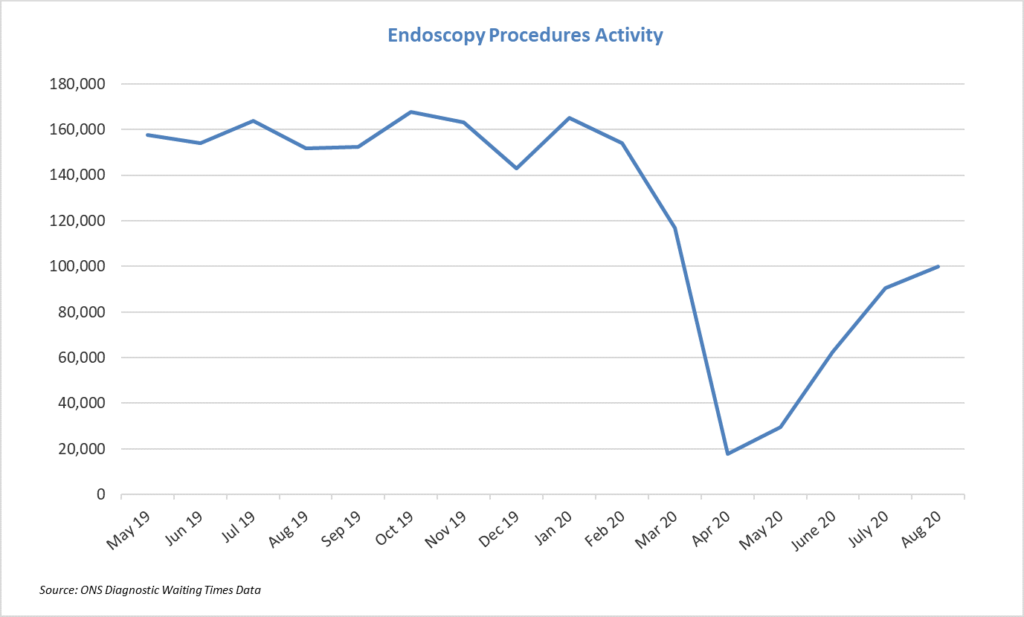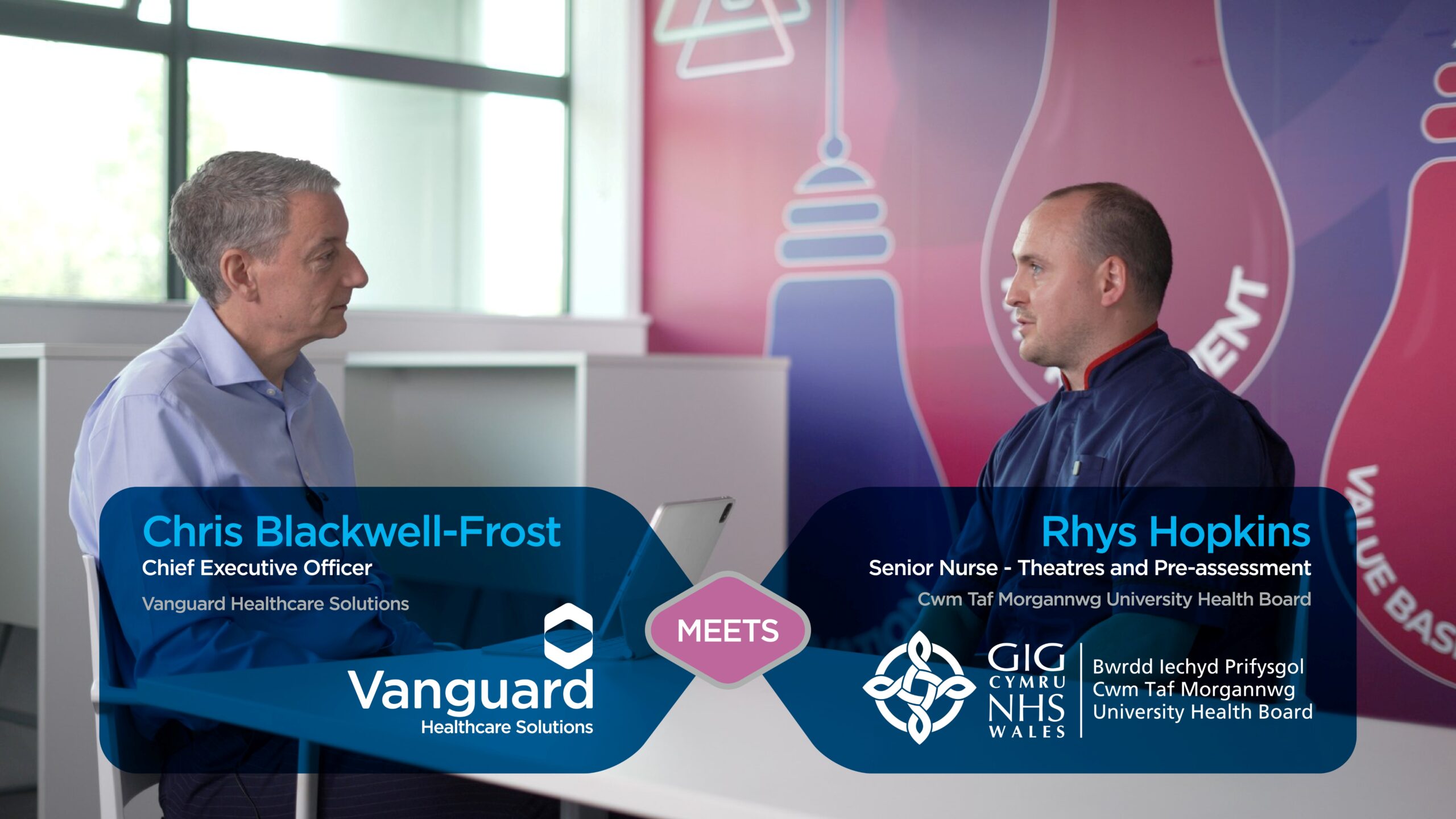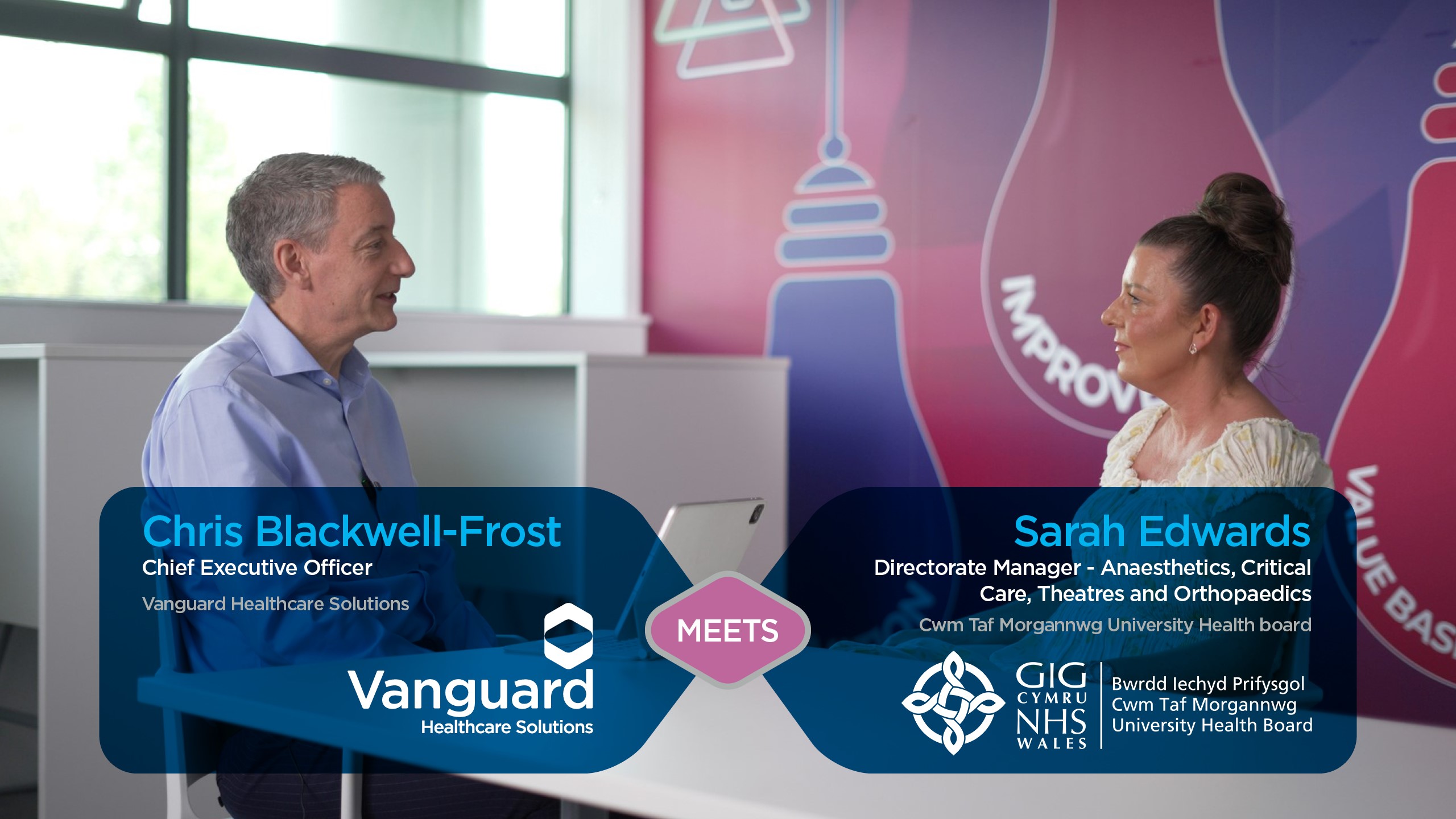Sembra che tu sia negli Stati Uniti
Abbiamo un sito diverso (www.q-bital.com) che si adatta meglio alla tua posizione
L'arretrato di pazienti in attesa di oltre sei settimane per un'endoscopia è aumentato notevolmente dall'inizio della pandemia di Covid-19 e le liste di attesa devono ora essere affrontate con urgenza. rapporto pubblicato di recente da parte dell'NHS England, chiede una riforma e propone di introdurre una rete di centri diagnostici nella comunità, alcuni dei quali conterranno strutture di endoscopia.
UN endoscopia mobile o modulare L'unità può essere utilizzata nel frattempo, o insieme a un centro comunitario, per creare una struttura autonoma che fornisca un percorso distinto per i servizi di endoscopia elettiva. Un bisogno urgente di affrontare i tempi di attesa La domanda di endoscopia è cresciuta notevolmente negli ultimi cinque anni e, nonostante l'attività sia aumentata, i tempi di attesa sono aumentati più rapidamente, causando un arretrato. Le procedure flessibili di sigmoidoscopia hanno registrato i tassi di crescita più elevati, in gran parte dovuti all'implementazione del programma di screening con endoscopia intestinale.
Durante il Covid-19, la necessità di pulire a fondo attrezzature e strutture tra un paziente e l'altro ha portato a un calo della produttività e all'annullamento delle procedure e, di conseguenza, a tempi di attesa più lunghi e più lunghi. Nel complesso, i livelli di attività endoscopica si sono ridotti di oltre 90% al culmine della pandemia.
Le procedure endoscopiche di emergenza al culmine della pandemia sono state eseguite, ove possibile, in sale operatorie con pressione negativa dell'aria. La gastroscopia è stata inizialmente designata anche come procedura di generazione di aerosol (AGP), che comporta un rischio per gli endoscopisti se i pazienti sono positivi al Covid-19 o incerti al Covid-19, ma la gastroscopia non è più considerata un'AGP secondo le linee guida PHE.
 I dati più recenti dell'NHS England mostrano che, mentre l'attività di endoscopia è aumentata notevolmente da aprile, il tasso di recupero è rallentato notevolmente. L'attività ad agosto era circa due terzi di quella di un mese normale. Questo, in combinazione con il fatto che le liste di attesa non sono aumentate sostanzialmente ad agosto, nonostante il basso livello di attività, suggerisce che c'è ancora un considerevole arretrato "nascosto" di persone che non sono ancora entrate nelle liste di attesa.
La necessità di una protezione futura
Ora c'è un'urgente necessità di istituire strutture minime di endoscopia Covid-19 per favorire la ripresa. Il rapporto riconosce che l'accesso alle attrezzature e alle strutture di endoscopia, in particolare quelle per la colonscopia, erano già sotto notevole pressione prima della pandemia. Oltre alle limitazioni della forza lavoro, il programma Get it Right First Time (GIRFT) ha anche rivelato che circa 20 trust del NHS probabilmente richiederanno una ricostruzione completa delle loro strutture di endoscopia, mentre altre necessitano di miglioramenti.
I dati più recenti dell'NHS England mostrano che, mentre l'attività di endoscopia è aumentata notevolmente da aprile, il tasso di recupero è rallentato notevolmente. L'attività ad agosto era circa due terzi di quella di un mese normale. Questo, in combinazione con il fatto che le liste di attesa non sono aumentate sostanzialmente ad agosto, nonostante il basso livello di attività, suggerisce che c'è ancora un considerevole arretrato "nascosto" di persone che non sono ancora entrate nelle liste di attesa.
La necessità di una protezione futura
Ora c'è un'urgente necessità di istituire strutture minime di endoscopia Covid-19 per favorire la ripresa. Il rapporto riconosce che l'accesso alle attrezzature e alle strutture di endoscopia, in particolare quelle per la colonscopia, erano già sotto notevole pressione prima della pandemia. Oltre alle limitazioni della forza lavoro, il programma Get it Right First Time (GIRFT) ha anche rivelato che circa 20 trust del NHS probabilmente richiederanno una ricostruzione completa delle loro strutture di endoscopia, mentre altre necessitano di miglioramenti.
Nel rapporto dell'NHS England, si stima che siano necessarie circa 200 nuove sale di endoscopia nei Trust dell'NHS per coprire l'attuale crescita dell'endoscopia e consentire le estensioni pianificate al programma di screening intestinale. Sono necessarie anche nuove unità di decontaminazione dell'endoscopia e il rapporto raccomanda inoltre che tutte le apparecchiature di imaging esistenti più vecchie di 10 anni vengano sostituite.
Sfortunatamente, non esiste un registro nazionale delle risorse per le strutture di endoscopia e il rapporto raccomanda che vengano intraprese urgentemente indagini su attrezzature/strutture e personale per facilitare la pianificazione a breve e lungo termine. Il rapporto suggerisce la partecipazione al National Endoscopy Database (NED) da parte del 20% dei Trust NHS che non lo stanno già facendo.
Un rapporto pubblicato da Public Policy Projects in collaborazione con Vanguard due anni fa, è emerso che oltre un terzo degli ospedali dispone di sale di decontaminazione endoscopica con apparecchiature che si avvicinano o superano le raccomandazioni dei produttori e che circa il 25% degli ospedali dispone di sale di decontaminazione endoscopica vecchie più di dieci anni. Una soluzione pratica per l'endoscopia Si spera che l'istituzione di strutture di endoscopia prive di Covid presso alcuni dei centri diagnostici comunitari proposti o sportelli unici , insieme ai test sia sui pazienti che sul personale prima di tutte le procedure, possono significare che la necessità di una pulizia profonda tra un paziente e l'altro sarà notevolmente ridotta, consentendo un aumento della produttività più vicino ai livelli normali. I pazienti positivi al Covid-19 e coloro che necessitano di un'endoscopia di emergenza prima che possa essere determinato lo stato di Covid-19 dovrebbero continuare a sottoporsi alle procedure in strutture con pressione d'aria negativa (solitamente sale operatorie).
Per quanto riguarda la forza lavoro, il rapporto raccomanda l'istituzione di accademie di formazione per aumentare il numero di colonscopisti non medici e per consentire ai colonscopisti esistenti di occuparsi di colonscopie di screening. Saranno inoltre necessari più infermieri di endoscopia per soddisfare la domanda aggiuntiva.
Senza investimenti o una riforma dell'erogazione dei servizi, per sua stessa ammissione il NHS rischia di non essere in grado di raggiungere gli obiettivi, tra cui l'ambizione di diagnosticare 75% di persone con cancro in una fase precoce e migliorare i risultati per i pazienti. Anche se i piani venissero approvati rapidamente, le raccomandazioni nel rapporto richiederanno tempo per essere implementate. Ma con l'arretrato che aumenta ogni mese, aspettare è un'opzione?
Per ogni mese in cui la produttività è compromessa, la lista d'attesa cresce oltre un livello che può essere facilmente recuperato senza superare 100% di capacità esistente. È necessaria una soluzione provvisoria e infrastruttura clinica flessibile potrebbe fornire la risposta. Le unità di endoscopia mobili e modulari possono essere combinate con unità di contaminazione endoscopica flessibili e installate in quasi ogni luogo, adiacente a un hub diagnostico o altrove nella comunità, per creare un sito autonomo e privo di Covid per l'endoscopia elettiva.
Leggi il rapporto, che include una revisione dettagliata dell'attività endoscopica, Qui .
Una copia del rapporto "Guardando dentro: lo stato dell'endoscopia in Inghilterra" , prodotto da Public Policy Projects in collaborazione con Vanguard, può essere richiesto tramite contattandoci .



Soluzioni sanitarie Vanguard
Unità 1144 Regent Court, The Square, Gloucester Business Park, Gloucester, GL3 4AD

Abbiamo un sito diverso (www.q-bital.com) che si adatta meglio alla tua posizione